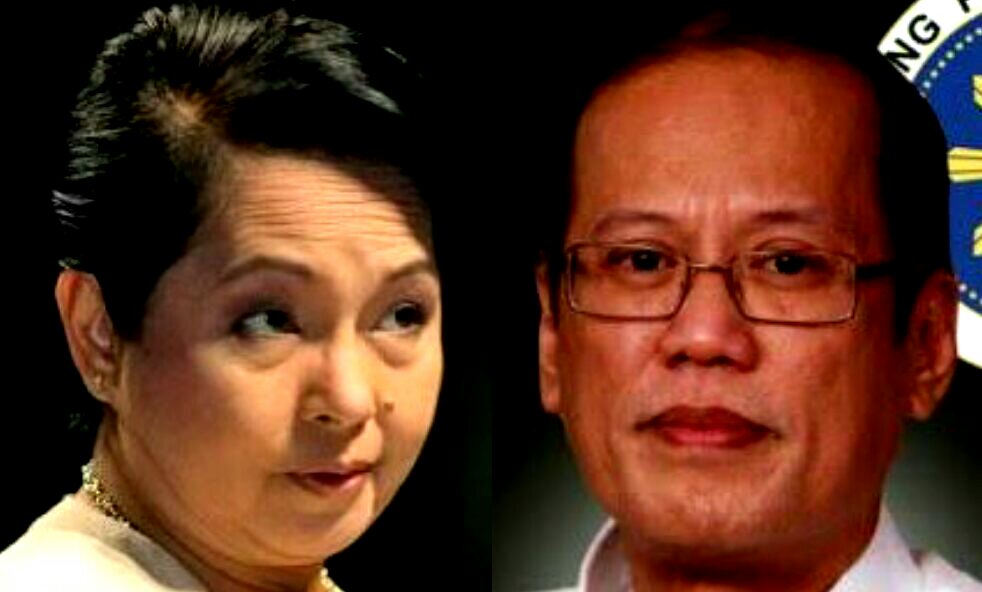ON strictly legal grounds, lawyers and justices will probably consider this as immaterial and irrelevant to the case of former President Gloria Macapagal Arroyo that has now moved to the Supreme Court for resolution.
But I put it to the learned justices and the nation—that it is in every way material to consider:
First—That Arroyo is the economist and leader who passed the policy reforms that paved the way for the revival and resurgence of the Philippine economy.
The Bangko Sentral ng Pilipinas (BSP) says so. The International Monetary Fund (IMF) says so. The World Bank (WB) says so. And the credit-rating agencies also say as much.
Second—Since Day One of his presidency, Benigno S. Aquino III has relentlessly persecuted and prosecuted Arroyo for all kinds of offenses, including plunder, electoral sabotage and corruption, and proven nothing.
Third—Aquino has systematically taken (stolen) the credit for Arroyo’s legitimate achievements as President. And his cronies in the private sector and the media have conspired with him in propagating the lie.
If as Harvard moral and political philosopher Michael Sandel is correct when he writes that, “Justice is about answering the question ‘what’s the right thing to do?’ then the full impact of the Arroyo presidency on national life must be weighed by the High Court in resolving her case.
IMF on policy reforms
Whenever President Aquino speaks of Aroyo’s decade of leadership (2001 – 2010), he has derisively called it “the lost decade.”
It is a blatant lie. In truth, it was a decade of major policy reform in the Philippines, or so says the IMF, which usually knows what it is talking about.
In its “Regional Economic Outlook for Asia and the Pacific,” the IMF has cited the Philippines as one of three countries in the ASEAN region that have undertaken policy reforms that led to the narrowing of social inequality; the two others are Thailand and Malaysia.
Significantly, the Philippine reforms commended by the fund were all launched and undertaken during the term of President Arroyo and not during the current term of President Aquino.
Specifically, the IMF cited a range of measures implemented in the 2000s to alleviate poverty and inequality.
To quote the report: “In 2002, the Comprehensive and Integrated Delivery of Social Services Program provided resources to poor rural municipalities to invest in public goods.
A package of pro-poor spending programs was launched in mid-2008 to mitigate the effects of the international food and fuel crisis.” Both these periods fell under the term of Mrs. Arroyo.
The IMF continued: “In addition, conditional cash transfers, also introduced in 2008 (also under Arroyo), set health and education goals for participants that aim to alleviate persistent inequality in access to education.”
“With a limited budgetary footprint (0.4 percent of gross domestic product), the program had covered 75 percent of all households identified as poor by the national targeting
scheme by 2013,” it said.
Finally, under the Arroyo administration, “the Philippine Congress mandated that from 2008 to 2018 at least 8 percent of banks’ loan portfolios be allocated to micro and small enterprises. Micro insurance has also been picking up in recent years, making the Philippines one of the top micro insurance markets in Asia,” IMF added.
Aquino and his economic managers, principally Finance Secretary Cesar Purisima, have falsified the Philippine economic record during the first decade of the new century.
Far from being a time of “the sick man of Asia,” it was a time of continuous quarterly growth and stabilization for the Philippine economy.
A genuine credentialed economist
President Arroyo knew her stuff because she is a genuine credentialed economist, while Aquino and Purisima are not economists.
The Aquino administration, if it understood the reform challenge better, would be able to answer competently when it is asked what reforms President Aquino actually introduced.
The Arroyo reforms underpin the impressive growth of the economy over the past 10 years, and will continue to help the economy well into the future.
The IMF has expressed confidence in the rise of the economy this year and next year, because it will be fueled by strong domestic demand.
The IMF expects the economy to grow from 5.8 percent in 2015 to 6 percent this year and 6.2 percent in 2017.
“The modest uptick in growth is expected to be driven by the continued strength of
domestic demand, which will more than offset the drag from net exports,” the report said.
The report said net exports “will remain subdued” but pointed out that “spillovers from China are and will continue to be smaller than in other parts of the region.”
The domestic economy posted a lower-than-programmed growth in 2015 after a slowdown of growth in the first quarter of 2015 to 5 percent from 6.6 percent a quarter ago because of a drop in net exports and lower government spending.
It managed to recover in the succeeding quarters due to higher government spending and the contribution of the services sector.
The IMF report said: “Private investment growth is expected to remain robust, owing to improvements in public infrastructure and implementation of public-private partnership projects.”
This is the picture of the economy as the administration of incoming President Rodrigo Duterte takes over from Aquino on June 30.
Stealing from the victims
One of the vilest images of World War II was the way the Nazis looted the possessions of their Jewish victims, even their gold dentures.
Aquino’s theft of the credit for the revival and resurgence of the economy from Gloria Arroyo has a similar repugnance.
The least that the SC and the nation must do is to rule that her tormentor should not steal from his victim, and then set the victim free. [source]
yenmakabenta@yahoo.com

